Queensland producers deliver restaurant-quality food to your door
As specialty food producers get innovative to survive in the coronavirus world, city dwelling food-lovers are the big winners. Here’s everything you need to know.

QWeekend
Don't miss out on the headlines from QWeekend. Followed categories will be added to My News.
The calls fanned out across the small crop fields and packing sheds, the fishing boats and kitchens, a chorus of questions filled with hope, grit and a good dollop of fear. “You reckon you could build me a couple of cold rooms in three weeks? Could I buy a food delivery van? How about making some ravioli and gyoza with my spanner crab? What the hell is Shopify?”
Best of Brisbane 2020: Top 10 fresh produce box delivery services
The answers – yes, you bet, why not and an online shopping platform – helped set the course for a coronavirus-led shake-up in the way Queensland’s specialty food producers and distributors do business. Ideas that had seemed too hard, too time-consuming, not core business or had not even been contemplated bubbled to the surface.
For some, the innovations put in place in those desperate weeks have been the difference between sinking and keeping afloat. Some have even grown stronger. “There are always positives and as horrible as it sounds, there’s been a lot of positives as a business out of COVID,” says Dallas Davidson, of Towri Sheep Cheeses.
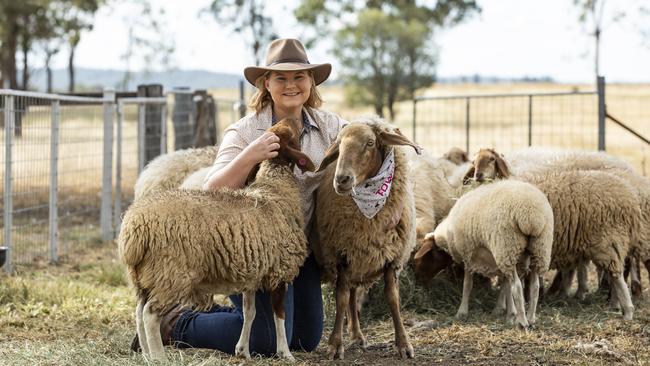
It didn’t look that way in March as order after order, tour after tour was cancelled at Davidson’s artisan cheesery and tourism farm where fat-tailed Awassi sheep graze the bucolic meadows of Allenview, about 60km south of Brisbane. The cheese business was just starting to hit its straps after more than a decade of hard slog, with high-end restaurants adding the cheeses to their menus.
“That market? It’s all gone for now,” says Davidson, who estimates it made up about 30 per cent of farm revenue. “We’d been building great connections with restaurants and our name was just exploding out there in terms of trade customers.” An even bigger slab of income – farm tours – disappeared, their first wedding had to be cancelled and the Easter launch of new accommodation was postponed.
But there was milk in the freezer so Davidson’s mother Carolyn got busy, churning out Isolation Cheese Packs. “We had to get creative,” she says.
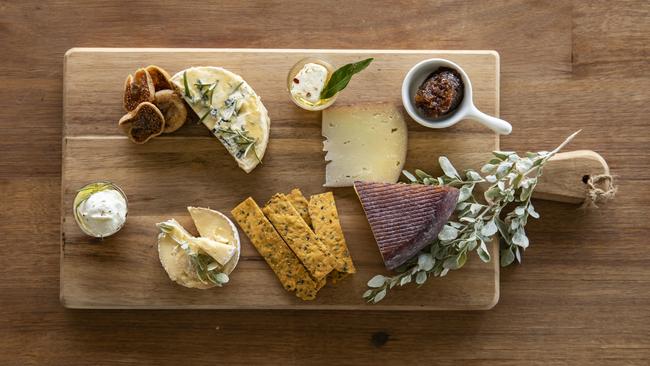
A staggered pick-up was organised, and locals flocked in. “We took social distancing to a whole new level; people had the whole farm to themselves.” An added bonus: the farm’s Ewe Poo sales went off as people grabbed a bag or two for their gardens.
Then Deb Richardson from Running Creek Beef got in contact. She and husband Rod deliver meat to Brisbane and the Gold Coast from their grass-fed Sahiwal herd that roams in the foothills of the McPherson Ranges. Richardson had often thought about adding some other Scenic Rim products to her delivery options but never got around to it.
A few phone calls later and she’s now delivering Towri cheeses, Kooroomba Gully sauces and chutneys, 4Real Milk products and Bunjurgen Estate verjuice and grape juice alongside her beef, as well as vegetable boxes from local fruit market, The Big Pumpkin.
The couple had to cancel reservations for their booked-out farmstay but the meat delivery business has grown despite the (hopefully temporary) loss of two restaurant customers. “We doubled in March and we did half of that again for April, so we’re at about a 150 per cent increase,” says Richardson. “I think it’s not only [driven by] people wondering, ‘Where are we going to get our food from?’ but also a heightened awareness of what we’re eating.”
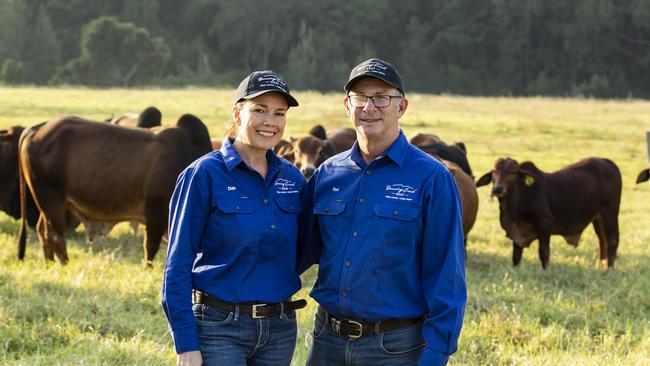
The boutique operators are now butchering an extra steer a month and an idea that had been rejected because of the drought has come to fruition. “We just did the hairy-scary thing, put pen to paper and ordered our own food-safe truck,” says Richardson. Leasing vehicles will end when the truck is delivered next month.
If you want eggs, lamb, goat, pork or beef, Tim Somes of Eggcettera, a free-range farm at Allora on the Southern Downs has his Navman ready and is plotting courses to homes in Brisbane, the Gold and Sunshine coasts and Toowoomba. Before the virus shutdown, about 70 per cent of his produce went to restaurants and most of the rest to butcher shops. Now households are the main customers after fast-tracking a redevelopment of his previously unpromoted online shop.
“You can’t sit back on your laurels, twiddle your fingers and wonder what went wrong,” says Somes, a delicious. Produce Awards winner. “You’ve got to hook in and have a crack.”
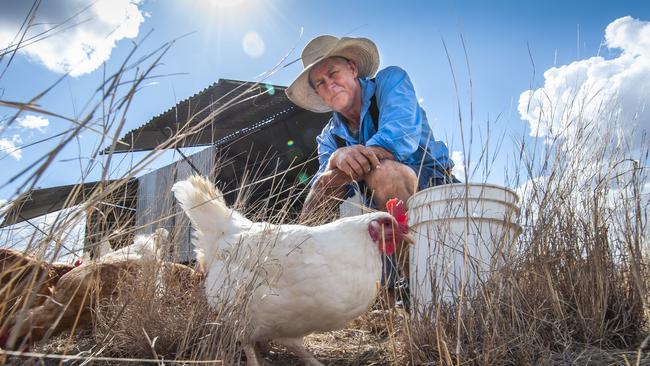
He hopes to continue supplying domestic customers when his main trade re-emerges.
That’s Dallas Davidson’s aim, too, after a new income stream evolved out of COVID-19. Like many Scenic Rim artisans, Towri Sheep Cheeses relied on Eat Local Week in June to entice city dwellers to the region to sample – and buy – their wares. With that canned, the local council joined together with producers to build the Scenic Rim Farm Box, a home-delivery service to the south-east corner offering produce from more than 40 suppliers.
Along with some cheeses, the Davidsons contributed an initial 300 tubs of the cheesery’s ewegurt to the online offering, a bigger production demand than the restaurant trade. The orders keep coming and luckily, it’s lambing season in June, so the milk will be flowing. “Look, this could be our biggest blessing,” she says. “It’s really going to put a lot of businesses in the Scenic Rim on the map.”
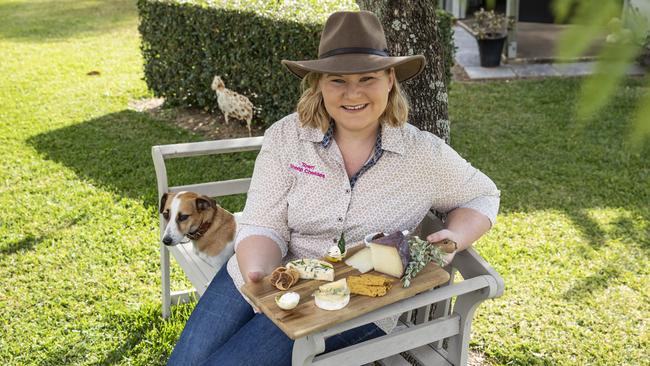
The epicentre of the venture is the Kalfresh distribution centre at Kalbar, near Boonah. The multi-million-dollar company supplies vegetables to supermarkets and did not experience a downturn during the height of COVID-19. But, says CEO Richard Gorman, as sponsors of Eat Local Week and with a strong link to other smaller growers, Kalfresh was keen to lend a hand after the concept of the box was pitched by founding organiser of the foodie extravaganza, Genevieve Windley.
Says Gorman: “So we went to the local lattice makers and they said they’d build a nice timber box, went to the local builder and said, ‘Could you build some extra cold rooms six months earlier than planned?’ and he said yes, went to the local butchers (The Butcher Co) and said, ‘Would you supply some meat?’.” Then they delved into setting up an online shop via the Shopify platform and “before we knew it, we had a concept”.
Now, producers hard-hit by the virus restrictions, such as Riverdale Herbs, Limes R Us and Tamborine Mountain Coffee Plantation, are delivering their produce to the Kalfresh site, where a team of packers bundle up the orders.
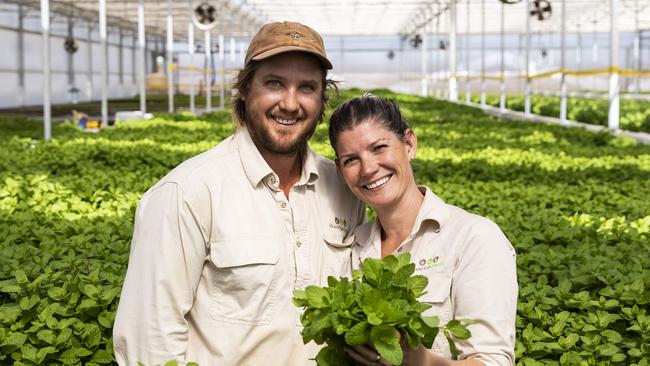
Special boxes are curated or you can order what you want. “We need 10 to 12 staff, some new, doing the dispatch management,” says Gorman. “I’ve got programmers, delivery models to tell us what route to take, we’ve had to hire an extra truck and probably need another one shortly.”
Windley says the demand has been so strong – the first 250 boxes into Brisbane for Mother’s Day sold out in just over 24 hours – she believes the box will be a permanent fixture, bringing a taste of the Scenic Rim to Brisbane and beyond. “You can’t get a lot of these products from other places,” she says. “You’re going to have dry-aged tomahawk steak and Dallas and Carolyn’s sheep cheese; you’re going to have bragging rights from this box.”
There’s already talk about finding a permanent facility for distribution: Kalfresh will need their new cold rooms back at some stage.
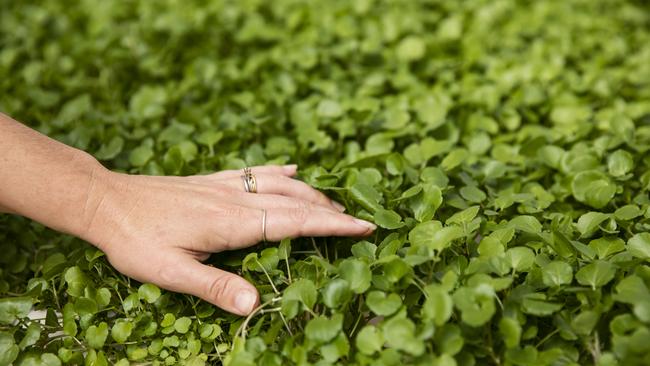
Business has never been better at The Lettuce Patch, a drive-through vegetable and fruit market in Bundaberg for which the time has come. “We are in the box seat here,” says Andrew Dowling of his “rough and ready” set-up that has recorded a 300 per cent increase in turnover since the virus hit.
He went big on modifications. A few crates, some timber and hessian bags became a counter to stop customers who want to get out of the car from wandering through his shed. He found an old phone, got a SIM card and set that up for orders. He Blu Tack-ed his tap-and-go machine to an old cheeseboard with a handle on it to hold out to customers to maintain social distance. Then he watched the cars roll in.
“Prior to this, a good day would be about 100 customers, now it’s 150 and they’re spending a lot more money,” says Dowling, who offers his own farm’s lettuce and ginger and a host of vegetables grown by farmers throughout the region’s salad bowl. “Used to be people would buy $10 worth of stuff, now they’re buying $50.”
He figures people were keen to avoid supermarkets and hopes that as restrictions continue to lift, his new customers will keep coming, seduced by farm fresh produce at a cheaper price.
By then he might have worked out how to advertise macadamia nuts on his Facebook site. “It said, ‘No, you can’t have sex aids on there’. Don’t know why, it’s been very much a learning curve!”
Jason Simpson knows the spanner crab export market like few others but making commercial amounts of gyoza, ravioli and dumplings filled with the luscious flesh has never been a priority. It is now. And local foodies will be the beneficiaries.
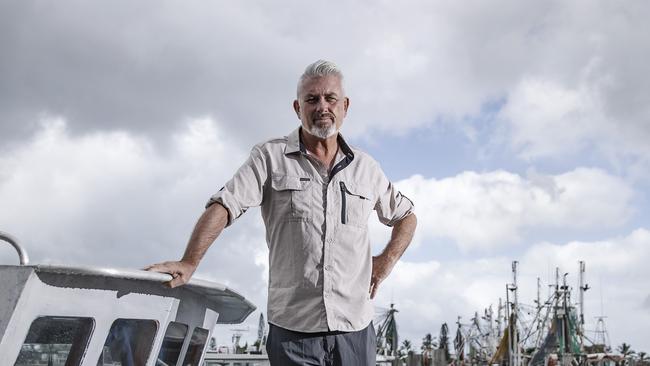
“Domestic consumption is going to be more and more important for us to counter our lack of sales into the export market,” says Simpson, whose business is a global leader in the supply of spanner crab. His company, Fraser Isle Spanner Crabs, lost 90 per cent of its trade in a double blow: at first, it could not export live crab to Asia, particularly China, and then local restaurants that took crabmeat closed.
With hundreds of thousands of dollars’ worth of crab in the freezer and six of his own boats and six independent ones relying on his market, Simpson had to move quickly. At least some luck was on his side. Andre Gorissen of Noosa Seafood Market had only just moved his commercial kitchen that makes ready-to-cook seafood products into the next-door premises at the Mooloolaba Fish Market.
“We’ll come out with a range of dumplings and raviolis under our brand and push it out to retail and maybe some food services,” says Simpson. He’s talking to leading supermarkets about taking the product.
It’s still going to be a tough few years, says Simpson, who doubts his markets to China will return in great volumes in a hurry. “I don’t think we’re going to be too welcoming to the Chinese and consequently there’ll be less Chinese tourism so less planes going back,” he says. “It took us a while to wrap our head around it but we’ve accepted it and are progressing.” His shipments are not large enough to qualify for Federal Government freight initiatives.
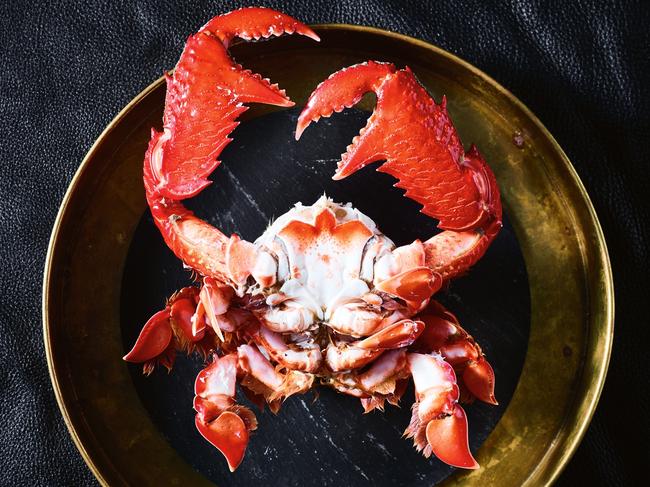
Still, he’s always dreamed of setting up a spanner crab-roll food truck “so that’s probably going to be fast-forwarded”. He’s also one of the main suppliers to The Crate Collective, a Sunshine Coast initiative spearheaded by chef Ryan Fitzpatrick and partner, Rashi Devendra, the founders of The Ohana Group, a wedding and events catering company.
The couple got home from a trip to Thailand just before the March lockdown – and then within a week, five months’ of bookings disappeared. The cancellation of the Byron Bay Bluesfest, Splendour in the Grass and the Ekka also dealt a blow to Fitzpatrick’s other business, the Tiki’s Shack food truck. About $300,000 worth of revenue evaporated.
He got talking to his suppliers who were also rocked by the loss of outlets so, just like the Scenic Rim producers, the Sunshine Coast chef hatched a plan. It launched its first crate for Mother’s Day, sending 300 boxes of Fraser Isle spanner crab, Ora king salmon, Green Valley finger limes and other produce to waiting foodies, along with recipe cards from local chefs as well as Ollie Hansford, the executive chef at Brisbane’s Stokehouse Q restaurant.
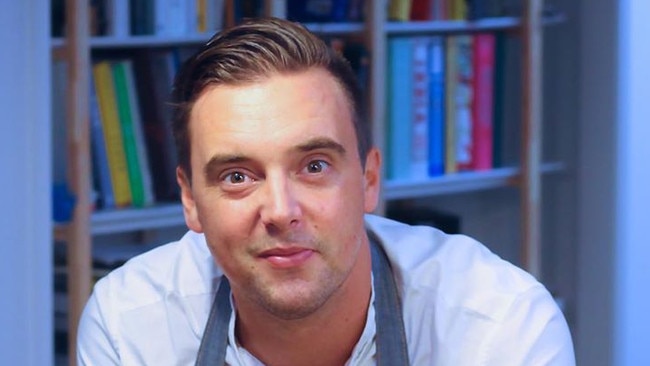
The twist to this box was the prepared meals. Fitzpatrick and some chef mates hit his commercial kitchen at Noosaville, readying spanner crab cakes and king salmon dip while Nick Blake, of Wild Forage Australia, which supplied edible coastal greens, knocked up the crates on the lawn using recyclable timber.
“We could have put our head in the sand and waited for it to be over but all the businesses wanted to stay current, that once this is over, we’re open for business,” says Fitzpatrick. He says the contact with domestic consumers has been energising. “We’re communicating with the public rather than just having that medium of a restaurant or a retailer, so it’s great.” An Asian yum-cha style box, Fantasia, with crab and sweet corn soups, steamed buns, dumplings and a curry, is about to go on sale.
One of the contributors to The Crate Collective, Jade King of Green Valley Fingerlimes, whose farm is in the Sunshine Coast hinterland town of Beerwah, says the support of the local community has helped put some colour into an otherwise dark time. This was the year the specialist in champagne red finger limes was going to hit the markets big, after increasing her tree numbers from 350 to 1200 last year.
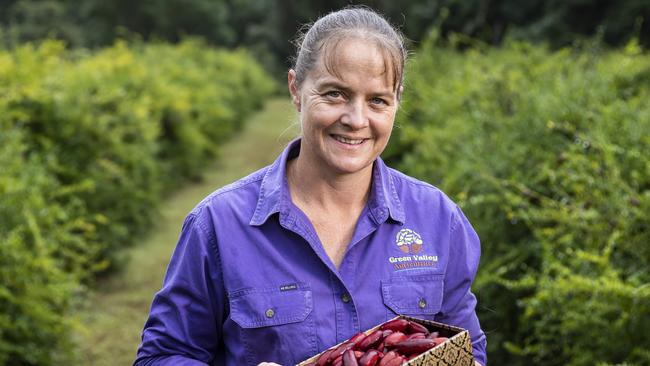
Her biggest export market was Italy. Soon after that market died, domestic markets dried up. About $10,000 worth of the native fruit already at, or en route to, the Sydney, Melbourne and Perth markets was thrown out, a loss King had to absorb.
She’s been busy exploring new opportunities. They can’t replace her markets but they are helping the products get greater traction at home (and work as an agriculture science teacher at a local high school is putting food on the table). The Crate Collective included some of her fresh finger limes and a mignonette and she’s been working with chef Matt Golinski on ways to process and package her fruit. Her online shop, never promoted, has now received hundreds of orders. She and her agents hope to get the product into supermarket lines.
“There’s an opportunity to change finger limes from the boutique market to the general household; if we can get it into shop lines where anyone can just pick up a punnet, then that would be beneficial for all finger lime growers.”
It’d help reduce the number of times she’s asked to explain what a finger lime is and how to use them, too.
One stellar option: in cocktails. The zesty, caviar-like pearls in the cylindrical citrus adds a zing to a Tom Collins and that is exactly what Josh Donohoe of Creative Tours did with a bunch of them in an ingenious COVID-19 business pivot. As Donohoe points out: “We put people on a bus and take them to visit farms and producers on the coast – and both those things became unavailable to us because of the virus. So it was, ‘What do we do next?’.”
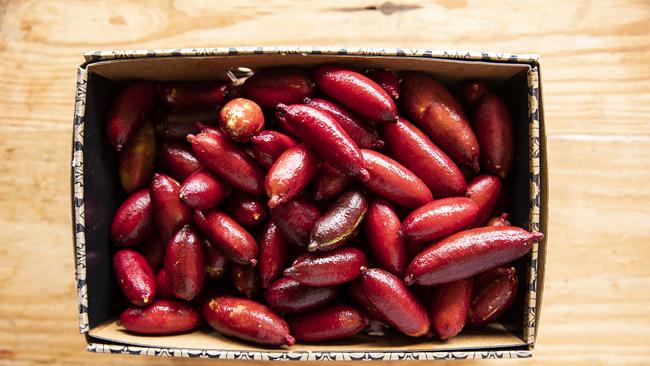
He came up with virtual Masterclasses, an idea he figures could be rejigged in future to seduce overseas and interstate tourists to the region. Every few weeks or so, Donohoe teams up with local producers to develop a foodie class delivered into people’s living rooms via Zoom. After signing up, the fixings for the class are delivered to the customers’ door and they can log on and be guided through products such as coffee, chocolate, beer or cheese by the local maker. Some producers have done videos to give clients a tour of their farm.
King’s finger limes accompanied a bottle of gin from the Noosa Heads Distillery, along with some lemons from local farmer, Good Harvest Organic Farm. “Happy hour in your own home,” says Donohoe.
“It’s not a huge money-maker but it’s a good way to stay relevant,” he says. “This way we can hope to get through to the other side.”
The other side is a foreign place; it will never look the same again as markets and ways of doing business change after COVID-19. The trick, as these producers are learning, will be to stop glancing in the rear-view mirror and focus on the uncharted road ahead, bumps and all. ■


